- عنوان کتاب: Anti-colonial research praxis
- نویسنده: Caroline Lenette
- حوزه: استعمار
- سال انتشار: 2025
- تعداد صفحه: 393
- زبان اصلی: انگلیسی
- نوع فایل: pdf
- حجم فایل: 3.23 مگابایت
هر وقت از کمبود دانش در مورد یک موضوع مهم ناامید میشوم، به توصیه تونی موریسون برمیگردم. من همیشه نمیدانم که آیا من بهترین فرد برای پاسخ به این فراخوان هستم یا اینکه آیا یک کتاب بهترین قالب برای به اشتراک گذاشتن این دانش است. اما در مورد این مجموعه ویرایش شده احساس تردید نداشتم. پس از سالها تفکر و تدریس روشهای تحقیق از دیدگاه غربمحور – محتوایی که به ارث برده بودم و در تغییر چارچوب آن مردد بودم – رهبری این ابتکار و کار در کنار گروهی برجسته از محققان ملل اول و جهان اکثریت (یعنی مهاجران و پناهندگان) یکی از بهترین تجربیات زندگی من بود. من از مارسلا پولانکو و همکارانش (۲۰۲۰) الهام میگیرم تا موضع خود را به اشتراک بگذارم. من به عنوان عضو هیئت علمی یک دانشگاه استرالیایی و به عنوان یک مهاجر ناخوانده که در زمینهای دزدیده شده و استعمار شده زندگی و کار میکند، در عملیات دانشگاه به عنوان یک مرکز ممتاز قدرت اروپامحور همدست هستم. این کتاب پاسخی است به ساختارهایی که من از آنها بهره بردهام و جامعه، تحقیق، روششناسیها و تولید دانش را فقیر کردهاند. نوشتن در مورد پراکسیس تحقیقاتی ضد استعماری از موضع امتیاز نسبی در دانشگاه، پاسخی جایگزین به «وفاداری مداوم من به این سیستم و رویههای فقیرکننده آن است که من در تکرار آنها همدست بودهام» (پولانکو و همکاران، 2020، صفحه 148). انتخاب من برای پرداختن فعال به این تناقض، فرآیندی از بازاندیشی آنچه در درون و فراتر از نهادهای فعلی امکانپذیر است، نشان دهنده «تلاشی فروتنانه برای ترمیم پایداری تاریخی دانشگاه در استعمار دانش» است (پولانکو و همکاران، 2020، صفحه 148). کتابی در مورد پراکسیس ضد استعماری از دیدگاه ملل اول و محققان جهان اکثریت، ایدهها و رویههای بسیار متفاوتی را با هدفی مشابه گرد هم میآورد: بیثبات کردن شیوهای که روشهای مبتنی بر غرب جایگاه مرکزی و بیچون و چرایی در تحقیق و دانشگاه دارند و تلاش برای دستیابی به عدالت دانش. به عنوان یک مجموعه، هدف ما تغییر و بازاندیشی امکانات روشهای تحقیق است. همکاری با این مشارکتکنندگان یک افتخار واقعی و یک سفر یادگیری فوقالعاده بوده است. آنها با اشتیاق به دعوت من برای به اشتراک گذاشتن دانشی که همیشه در جای دیگر مورد استقبال قرار نمیگیرد، پاسخ دادند. موج انرژی و خلاقیتی که هنگام خواندن چکیدههای آنها در سال 2022 احساس کردم، با همکاری ما روی پیشنویسها در سال 2023 تقویت شد. من افتخار همکاری با ده نفر از نویسندگان برای نوشتن نتیجهگیری را داشتم. نمیتوانم بیان کنم که این فرآیند چقدر فوقالعاده غنی، قدرتمند و احیاکننده بود. چشمانداز اجتماعی-سیاسی بینالمللی با نهایی کردن فصلهایمان بدتر شد. ما نمیتوانستیم نسلکشی فلسطینیها در نوار غزه اشغالی را از اکتبر 2023 نادیده بگیریم. این رویداد ویرانگر، همراه با چندین نمونه از سلطه استعماری مداوم در کشورهای مربوطه که در آن زندگی میکنیم، ما را به عنوان نویسندگان و محققان دانشگاهی که درگیر کارهای ضداستعماری هستند، به (بازنگری)معنای دانش و عمل خود سوق داد. ما خشم خود را به سمت نوشتن در همبستگی با دیگران در سراسر جهان که همین احساس را دارند، هدایت کردیم. ما امیدواریم که این کتاب بتواند افراد همفکر را از طریق گفتگوهای حمایتی و هدفمند در مورد چگونگی ادامه استفاده از امتیازات خود برای پیشرفت از بحثهای صرفاً مفهومی در مورد «استعمارزدایی» به اقدامات ملموس برای تغییر، گرد هم آورد. نگارش این کتاب همزمان با توسعه کتابخانه تحقیقات ضداستعماری (www.anticolonialresearchlibrary.org)، یک مخزن آنلاین با اهداف مشابه این کتاب، انجام شد. من این ابزار را در سال ۲۰۲۳ توسعه دادم تا منابع عالی را که در مورد تحقیقات استعمارزدایی و مدلهای ضداستعماری پیدا کردم، ترکیب کنم تا دیگران بتوانند نقطه شروعی در جستجوی خود برای این بورسیه داشته باشند. در زمان نگارش این کتاب، کتابخانه تحقیقات ضداستعماری تقریباً ۴۵۰ منبع (مقالات، وبسایتها و ویدیوهای داوریشده با دسترسی آزاد) را در خود جای داده بود. این سایت دهها هزار بازدیدکننده و چندین پیشنهاد برای مشارکتهای جدید در مخزن را به خود جذب کرده بود. واکنش مثبت (بهویژه در رسانههای اجتماعی) به اعلام این کتابخانه نشان داد که چقدر جامعه دانشگاهی بینالمللی و جامعه گستردهتر به دنبال منابعی در مورد رویههای ضداستعماری هستند، زیرا اکنون درک عمیقتری از جنبههای مشکلساز شیوههای تحقیقاتی غربمحور و استعماری – و مسئولیت جمعی ما برای رسیدگی فعال به آنها – وجود دارد. مطمئن نیستم که آیا به پیروی از توصیه تونی موریسون ادامه خواهم داد یا خیر! هر پروژه کتاب، یک اقدام بزرگ است که نیاز به زمان و فضای ذهنی قابل توجهی دارد. بسیاری دیگر هستند که بورسیه تحصیلی آنها باید فضای بیشتری را در آکادمی به خود اختصاص دهد و امیدوارم که این کتاب باعث ایجاد فرصتهای جدید انتشار (و سایر) با تمرکز ضداستعماری برای کسانی شود که از امتیازات کمتری برخوردارند. برای من، یادگیری از تخصص و سخاوت ملل اول و محققان متنوع جهان اکثریت، بهترین نوع تحقیق و دانشگاه را نشان میدهد.
Whenever I feel frustrated by the lack of scholarship on a crucial topic, I find myself returning to Toni Morrison’s advice. I don’t always know if I am the best person to respond to this call, or whether a book is the best format to share this knowledge. But I did not feel ambivalent about this edited collection. After many years thinking about and teaching research methods from a western-centric perspective – content I inherited and was hesitant to reframe – leading this initiative and working alongside a stellar group of First Nations and majority-world (i.e., migrant- and refugeebackground) researchers was one of the best experiences of my life. I draw inspiration from marcela polanco and colleagues (2020) to share my positionality. As a faculty member of an Australian university, and as an uninvited migrant settler living and working on stolen and colonised lands, I am complicit with the operations of academia as a privileged centre of Eurocentric power. This book is a response to the structures I have benefited from and that have impoverished society, research, methodologies, and knowledge production. Writing about anti-colonial research praxis from a position of relative privilege in academia is an alternative response to ‘my ongoing faithfulness toward this system and its impoverishing practices of which I have been an accomplice in replicating’ (polanco et al., 2020, p. 148). My choice to actively address this contradiction is a process of reimagining what is possible within and beyond current institutions and represents ‘a humble attempt at repairing academia’s historical sustainability of the coloniality of knowledge’ (polanco et al., 2020, p. 148). A book on anti-colonial praxis from the perspectives of First Nations and majority-world scholars brings together vastly different ideas and practices with a similar purpose: to destabilise the way western-based methods occupy a central and unquestioned place in research and the academy and to work towards knowledge justice. As a collective, we aim to transform and reimagine the possibilities of research methodologies. Working with these contributors has been a real honour and an extraordinary learning journey. They responded enthusiastically to my invitation to share scholarship that is not always welcome elsewhere. The surge of energy and creativity I felt while reading their abstracts in 2022 was amplified as we worked together on drafts in 2023. I had the privilege of collaborating with ten of the authors to co-write the conclusion. I cannot express how incredibly rich, powerful, and regenerative this process was. The international socio-political landscape worsened as we finalised our chapters. We could not ignore the genocide of Palestinians in the occupied Gaza Strip from October 2023. This devastating event, along with several examples of ongoing colonial domination in the respective countries where we live, led us, as academic authors and researchers engaged in anticolonial work, to (re)consider the meaningfulness of our scholarship and praxis. We channelled our outrage to write in solidarity with others around the globe who feel the same way. We hope that this book can bring similar minded people together through supportive and purposeful conversations on how we must continue to use our privileges to progress from mere conceptual debates on ‘decolonisation’ to concrete actions towards change. The writing took place alongside the development of the Anti-Colonial Research Library (www.anticolonialresearchlibrary.org), an online repository with similar aims to this book. I developed this tool in 2023 to synthesise the excellent resources I found on decolonising research and anti-colonial models, so that others would have a starting point in their own search for this scholarship. At the time of writing, the Anti-Colonial Research Library held approximately 450 resources (open access peerreviewed articles, websites, and videos). The site had attracted tens of thousands of visitors and several suggestions for new contributions to the repository. The positive reaction (especially on social media) to the announcement of this library signalled how much the international academic and broader community seeks resources on anti-colonial praxis, because there is now a deeper understanding of the problematic aspects of western-centric and colonial research practices – and of our collective responsibility to actively address those. I am not sure if I will keep following Toni Morrison’s advice! Any book project is a major undertaking that requires significant time and headspace. There are many others whose scholarship should take up more space in the academy, and I hope that this book prompts the creation of new publication (and other) opportunities with an anti-colonial focus for those with fewer privileges. For me, learning from the expertise and generosity of First Nations and diverse majority-world scholars represents research and academia at its best.
این کتاب را میتوانید از لینک زیر بصورت رایگان دانلود کنید:
Download: Anti-colonial research praxis




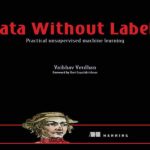


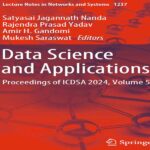


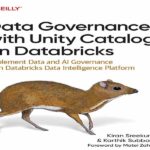
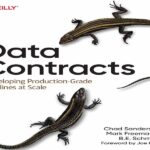

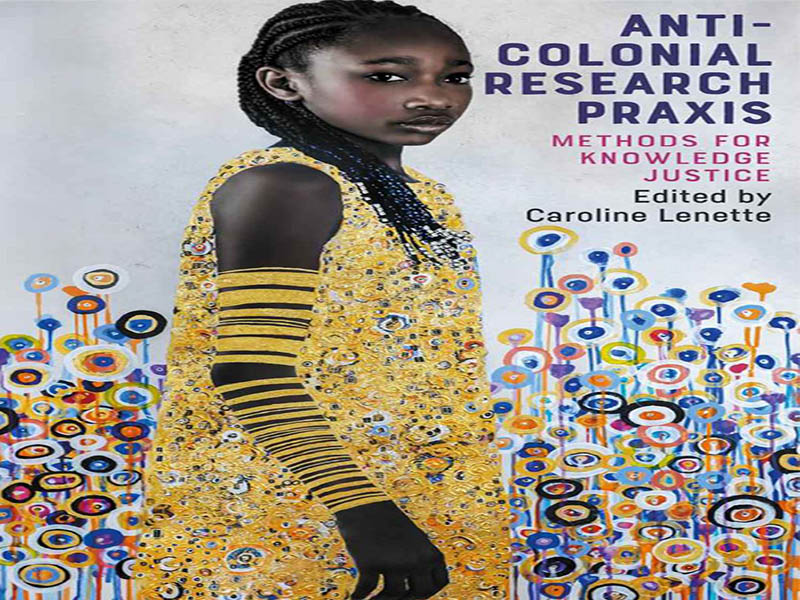

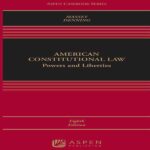




















نظرات کاربران